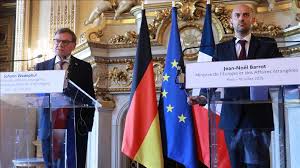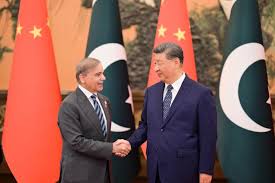France, Germany voice commitment to strengthening Europe

Istanbul: French Foreign Minister Jean-Noel Barrot and his German counterpart, Johann Wadephul, voiced a commitment to strengthen Europe and their continued support for Ukraine during a news conference Friday in Paris.
“We share the same commitment to the Franco-German engine — a unique partnership that places us at the forefront of efforts for a united, strong, more sovereign and more resilient Europe. We believe in a European Union capable of acting, of protecting its citizens, of defending its democratic values, and of speaking with a clear voice on the international stage,” said Barrot.
He announced that they agreed on a comprehensive agenda to revitalize their relationship and to strengthen Europe, focusing on security and defense, the restoration and development of European competitiveness and the alignment of economic and social systems.
“We will continue to strengthen our own defense capabilities and support our European defense industrial and technological base,” Barrot reaffirmed.
Wadephul echoed the statements, urging Europe to take its destiny into its own hands and to guarantee the security of the continent.
“We share the imperative of continuing determined support for Ukraine over the long term and in all areas in the face of the intolerable Russian aggression. This support includes, in particular, the continued supply of weapons to enable Ukraine to defend itself, but also the tightening of economic sanctions against Russia to dry up the resources financing its aggression,” Barrot added.
They welcomed the approval of one of Europe’s “strongest” sanctions packages on Russia, while the Wadephul urged the US to do the same.
“We discussed the situation in the Middle East. A ceasefire must be reached. All hostages must be released, and negotiations to achieve a lasting resolution to the conflict must be initiated,” Barrot said.
He reiterated the need to remain “mobilized” to “urgently” improve the humanitarian situation in the Gaza Strip by “monitoring Israel’s implementation of its commitments.”
Wadephul voiced support for the Syrian transitional government if it advocates for an inclusive process and protects civilians. He called on other parties in the region to respect Syria’s sovereignty.
“We also exchanged views on migration and the situation at our borders. Germany’s strengthening of border controls falls within its rights. However, it is obviously important that preserving public order does not come at the expense of free movement within the Schengen Area, especially for our citizens living in border regions,” Barrot added.
Barrot and Wadephul noted they are in favor of a “negotiated solution” with the US regarding the 30% tariffs imposed by Donald Trump.





